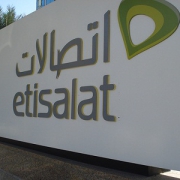‘Smart’ Use of Smartphones for Health Services: A Case of TB in Nigeria
Using smartphones to collect tuberculosis (TB) data within the health sector of Nigeria has eliminated the use of printed forms; minimized human error in data entry; reduced the lag time of availability of data for policymakers and managers; and helped pinpoint ways to improve delivery of TB care, reported Leah Ekbladh.
Ekbladh, who is a Senior Associate at Abt Associates was giving a talk hosted by the Global Health Council on the topic “Quality TB Care: Using Smartphone Technology for Data-driven Improvements in Nigeria” as part of the Health Systems 20/20 presentation series on Tuesday January 10. Her talk focused on TB quality improvement activity in Nigeria, the Abt Associates’ approach to quality improvement (QI), the before and after picture of supportive supervision (SS) system, next steps, and lessons learned.
TB Situation in Nigeria and the Health System
According to Leah, with Nigeria ranking 10th among the 22 high TB burden countries in the world, the country’s TB situation could be improved. Before the HS2020 and the National TB Program’s joint intervention, the TB supervision system was largely paper-based. Results of data collected from health facilities were not available immediately for feedback and quality improvement; each state had its own paper-based system with different design of the forms and different items; data were compiled quarterly at State levels; and data entry and analysis was time consuming and prone to a lot of human error.
With support through Health Systems 20/20, the USAID flagship project for strengthening health systems worldwide, the need to strengthen the Supportive Supervision (SS) system to improve performance and treatment outcomes with Nigeria’s health sector was identified. The activity by Abt Associates aimed to shift away from the long paper-based checklists that do not support timely QI at the health facilities, towards supervision that concentrates on performance of clinical tasks, resolution of problems experienced by the health workers, and increased feedback from supervisors.
The Activity: The Role of Information and Communication Tools
The project believes that when the new information and communication technologies (ICTs) are smartly and strategically integrated into existing development processes, they can help streamline, transform and improve services. And with the strong in-country leadership support from Nigeria to explore new and innovative ways of improving quality through SS system, the activity took off smoothly with a pilot in 4 local government areas (LGA) in 4 states.
Tools Used: Beginning with what was available at the time, and also based on the usability of the features, Personal Digital Assistants (PDAs) were used in combination with Pendragon software to help in creating forms, connecting the forms to the users, distributing the forms, and uploading the forms to a database. After a year of piloting, it was realized that the market for the PALM PDAs was declining with the increasing use of smartphones in Nigeria. Also, EpiSurveyor software from Datadyne was recommended due to its ease of use and its ability to calculate and populate the forms for data collection.
Outputs
Rapid Results Indicators (RRI): RRI form was created with the most critical items that sum up the key elements that are needed for quality data collection, analysis, use and QI for supervision. This was done through repeated iteration resulting in a consolidated checklist that streamlines and integrates the numerous checklist that exists on the paper-based system. The checklist (RRI) loaded into the smartphones, are programmed to do automatic calculations of critical indicators by reducing human error.
Training and Capacity Building: Thirty (30) out of 50 supervisors have been trained on the use of the smartphone technologies and data managers are also trained on the use and improvement of the database. (It should be noted that these people are the existing public servants of the ministry of health in Nigeria). Six rounds of data collection have been done with one using smartphones and five with PDAs.
Database: Through the system, a web-based database to house the data collected and to more easily aggregate and report information to the national level has been developed and launched. The database provides online data aggregation for analysis and dissemination, and quality control system of the data including online government approval data being published and used.
When data is uploaded, supervisors gets notified or alerted for review either on their phone through SMS or email. Updates are communicated back to the officer for review and publication.
Impact of the Activity
With the pilot activity, supervisors have reported the ease of use of the tool in data collection as well as for review and editing of submitted data. Some reported a reduction of working hours from 3 hours with paper-based system to 30-45minutes with the smartphone technology. Supervisors have indicated that the system is enabling them to monitor and assess performance of the TB health delivery system, identify problems and opportunities, and many cases take immediate action for improvement. For example, the rate of drug stock-outs has significantly decreased, and external quality control is easily obtained for quality service with far less delay.
Lessons Learned and Steps Forward
It was discovered that careful selection of technologies (information communication technologies) for international development activities is key for success; suitable technologies in combination with human resources (socio-technical) is critical; and steps must be taken to roll-out projects incrementally and then plan for scale-up.
In terms of scaling, a total coverage of Lagos and Abia is expected soon with the training of additional 50 supervisors and full integration of the database on schedule. The project also expects to leverage other funding sources to expand further and also involve the private sector in Nigeria.
Visit Abt Associates international health programs for more information on their activities and the Health Systems 20/20 presentation series site for information on the upcoming events and also access the audio recording of the talk.








































